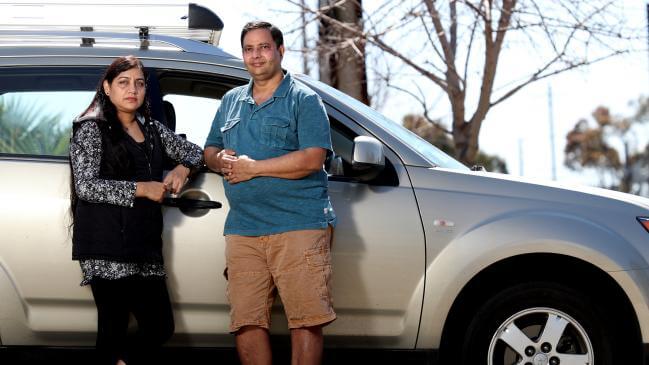
Amita Gupta lost her job after she and her husband, Santosh Gupta, did 2200 Uber Eats deliveries in Adelaide from 2017 to January this year. Mr Gupta said they were paid $19,000 over 18 months but had work expenses, including petrol and vehicle costs of $9000.
He said that during one week the couple were logged on to work for 96 hours but were paid just $300. When Ms Gupta was 10 minutes late with a delivery, her access to the phone app was cut off.
In its appeal, the union said the commission erred by failing to take into account that Ms Gupta was not operating her own independent business and the degree of “effective control” exercised by Uber over its relationship with her, including the way she was paid.
Mr Gupta said he and his wife, who both have disabilities and receive a pension, felt exploited.
“We are living here in Australia. How come in Australia a company can do this? It’s slavery,’’ Mr Gupta told The Australian. “It is exploitation and I thought it would be good to take the matter to court for the other drivers.”
TWU national secretary Michael Kaine said Uber workers had “zero control over their work, they cannot set rates and are entirely directed by an algorithm which allocates work based on an arbitrary ratings system”.
“It is not the hallmark of an independent contractor to have to be logged on for hours to an app in the hope of getting some orders, then having to accept whatever comes in and carrying out the work in quick time for as little as $6,” he said. “This is more akin to the working terms and conditions from the Hungry Mile a century ago, where workers trawled Sydney’s docks for hours for work.”
He said the case was “significant as Uber was leading the race to the bottom across the world in obliterating rights for workers’’.
“We believe a victory will prompt other courts in Australia to recognise rights for gig-economy workers, but the case will also pile pressure on the federal government to intervene on the side of workers and protect their rights.”
In its original decision, the commission said Ms Gupta rejected more than 550 delivery requests, and cancelled a further 240 after having accepted them.